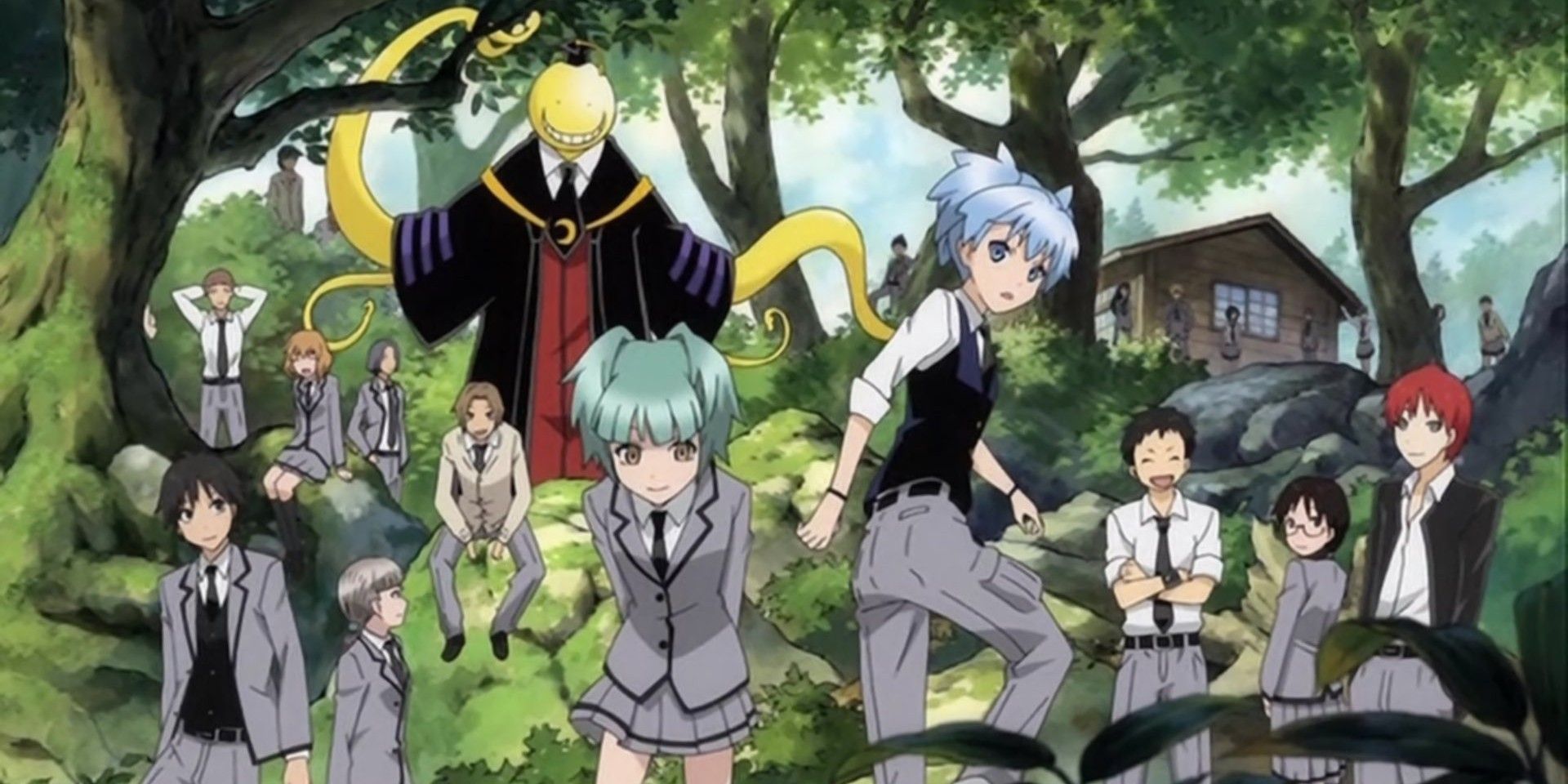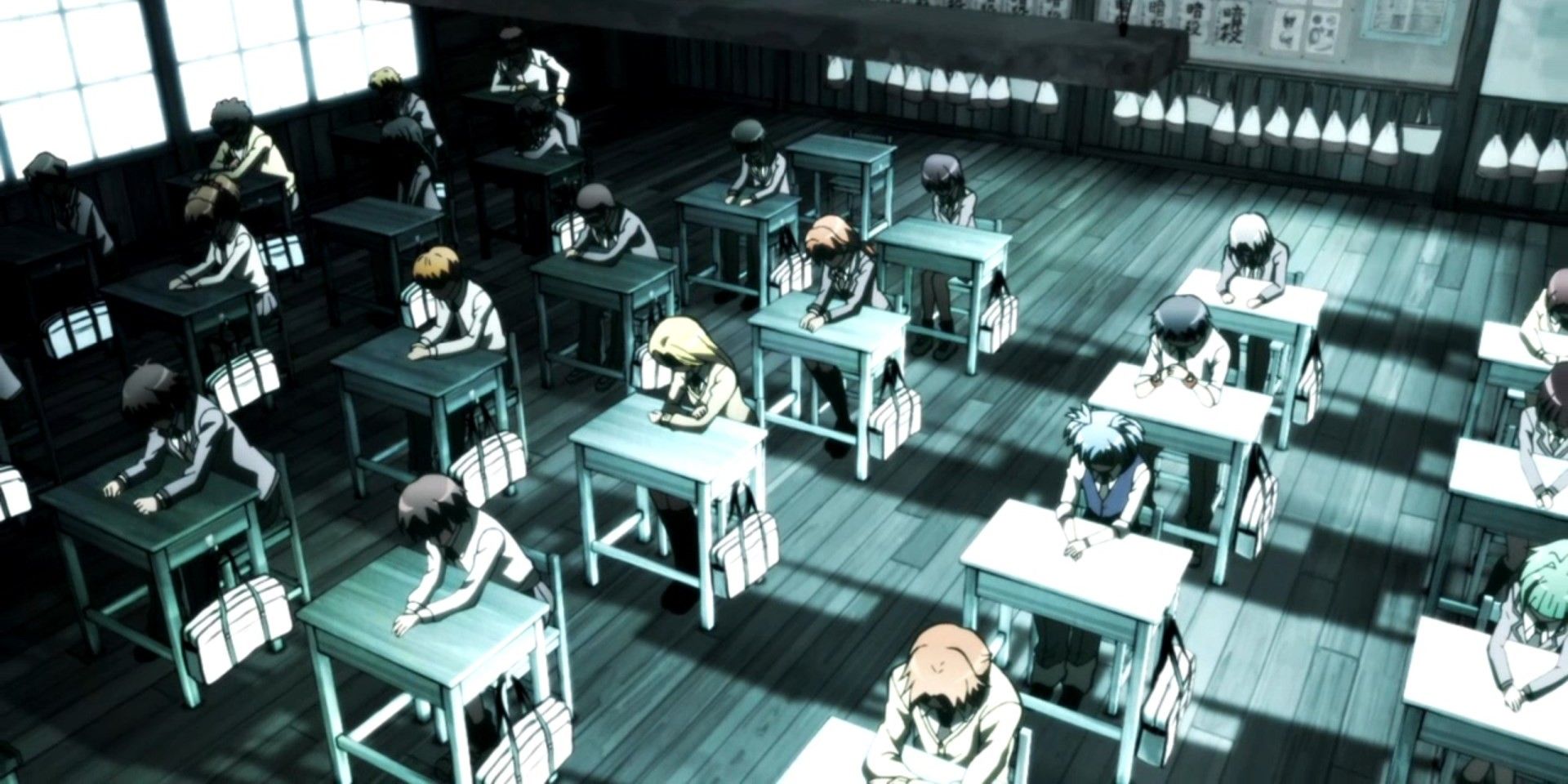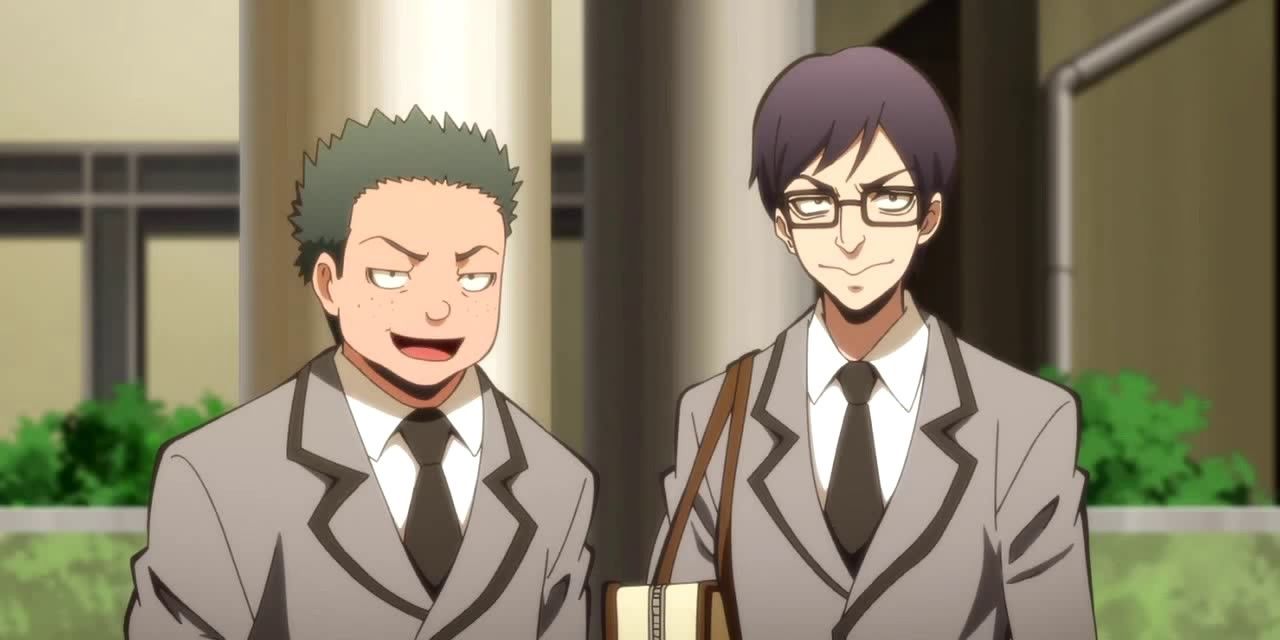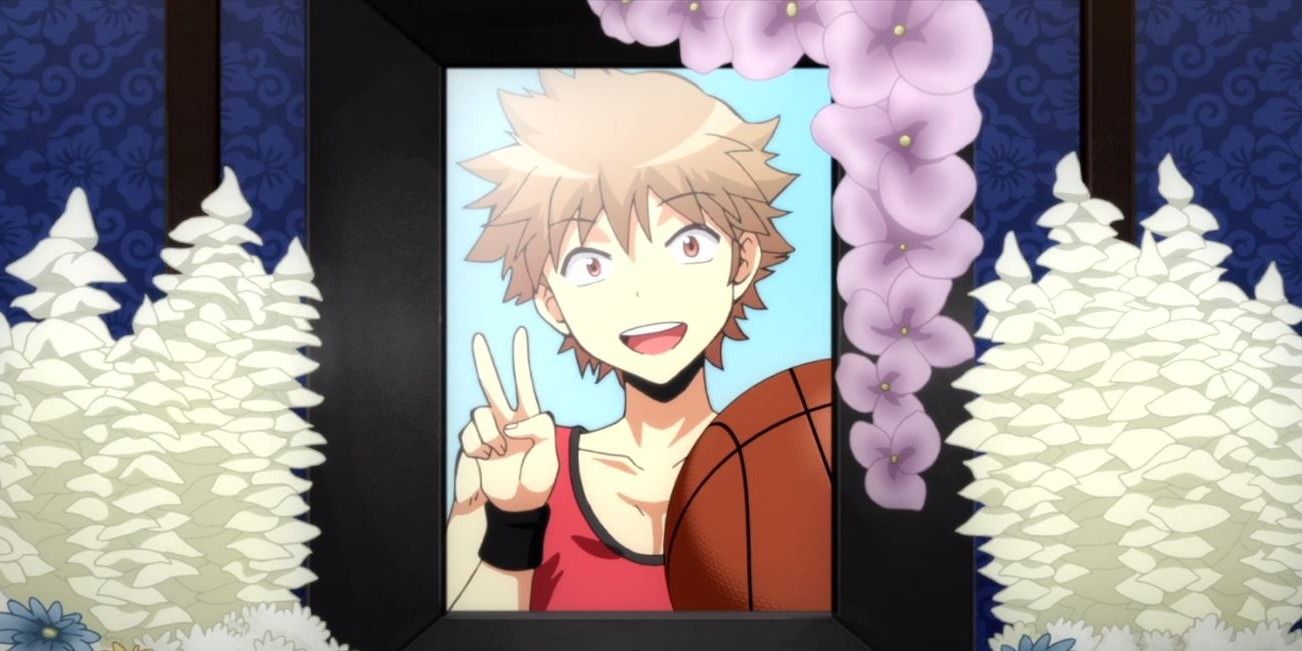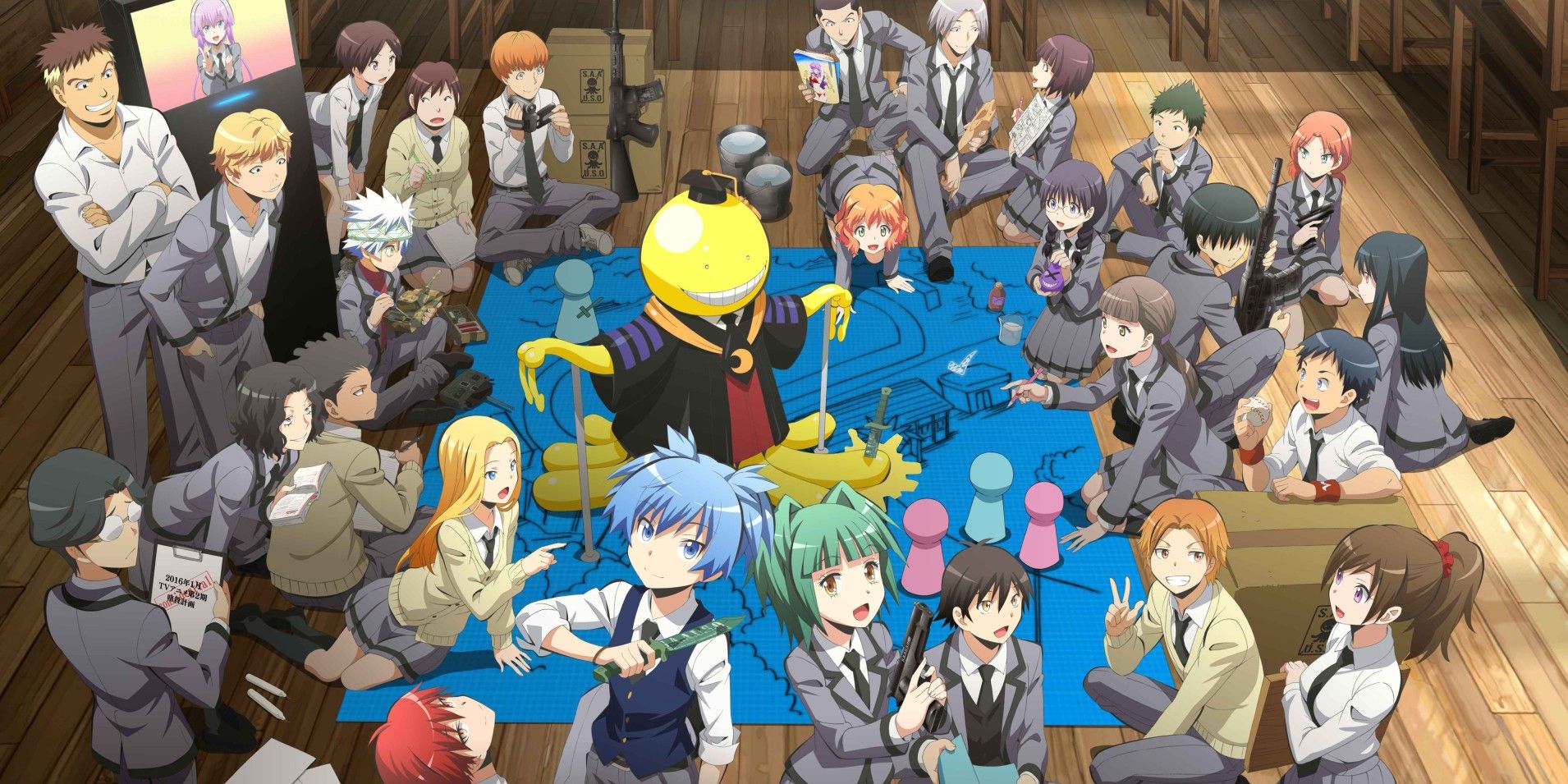WARNING: The following contains discussions of bullying and suicide.
With rainbow-haired class rosters and supremely authoritative student councils, anime is rarely the best reference for what school life in Japan really looks like. More specifically, a series following a humanoid octopus teacher and his adolescent would-be murderers seems like a far cry from a realistic image of the educational system.
However, despite its extravagant premise, Assassination Classroom contains themes and plotlines that provide profound insight into some of the most widespread issues plaguing many of Japan's educational institutions. In doing so, it not only sympathizes with the plight of its target audience but also prescribes lessons on how this situation can be improved.
Assassination Classroom's main cast is made up of the children of Kunugigaoka Junior High's Class 3-E -- a class comprised entirely of students ostracized for their poor academic performance. Rather than being placed in courses to help them improve, Class 3-E is pushed away from the rest of the school to serve as a cautionary example of perceived academic failure.
As a result of this system, Kunugigaoka's students live under extreme pressure from both the school and their families, forced to succeed out of fear that they might be cast aside if they let themselves slip. This sort of formal punitive structure is largely a creation of the series, but it sheds light on a predicament that many Japanese students face.
Advancement through the Japanese educational system is typically based on success in entrance exams, much like the ones that the students of Class 3-E agonize over throughout the course of the series. These exams, which are sometimes critically rigorous, are the source of much anxiety, as they can dictate the trajectory of a student's academic career and determine what high schools or colleges they are able to attend.
It should be noted that although there are exceptions to this approach, these exams are the typical means of admission for a majority of schools. Likewise, a considerable amount of schools counsel students to consider future career plans from a similarly young age, just like the students of Assassination Classroom in Episode 31.
According to an article from Nippon.com, students report that scholastic pressures like these, as well as other conformist policies on self-expression, are large factors in anxiety, depression and absenteeism. While numerous establishments throughout Japan aim for a more personalized method that invests in students to meet their individual needs, a large number of institutions base their curriculum on this advancement-focused cookie-cutter approach. This not only leaves struggling students in the dust but fails to adequately challenge students that are ahead of their peers -- a situation that led to delinquency for Class 3-E's Karma Akabane.
Furthermore, just like Class 3-E's Nagisa Shiota, a high percentage of Japanese students are the victims of bullying in their school life. While some of this bullying takes the form of physical violence, an article in Savvy Tokyo reports that the overwhelming majority of cases consist of verbal antagonism such as threats, insults and hazing. As much of this bullying is difficult to prove, many cases go unreported and unresolved. Problems such as these have become so widespread and destructive that Japan passed a law aimed at early detection and tracking to prevent bullying in 2013.
Sadly, the law was largely influenced by a high degree of child suicides, another problem plaguing school-aged children. Statistically speaking, Japan previously had one of the highest annual suicide counts in the world. While the general figures of suicide cases have gradually decreased over time, the number of child suicides has consistently gone up each year. A previous study undertaken by the Japanese government found that there was a correlation between the start of the school term and the frequency of suicides, indicating that school-related problems may be a large factor.
Assassination Classroom touches on this subject through Rikuto Ikeda, the late student of Kunugigaoka's headmaster Gakuho Asano. While Ikeda was a bright, friendly and cheerful child, he faced academic hardship and bullying upon entering high school, which ultimately led to him taking his own life. Since Assassination Classroom is aimed at a middle to high school-aged demographic, these struggles are surely ones that resonate with its readers.
Still, there is an abundance of practices in Japan's schools that help nurture children during their time in education. Although conformity can have its dark side, a great number of Japan's schools foster a beneficial sense of unity through activities that go beyond classroom academia. Assassination Classroom has its own renditions of staple events like camping, school trips, sports day and cultural festivals, each of which contributes to building bonds of community for students and friends, just as they did for Class 3-E.
In addition, although the issues above may be common problems hindering a healthy school life for some Japanese students, they are by no means universal or essential to Japan's academic system. Many instructors and schools throughout the country work to provide for their students and guide them through the struggles and conflicts they face. Whether it be through an alternate approach to traditional learning or simply dedicated attentiveness, there is an effort being made to remedy these issues. Much like Koro-Sensei, Class 3-E's smiling mutant teacher, these educators will fight for their students and do everything in their power to help them not just succeed, but to believe in themselves.

